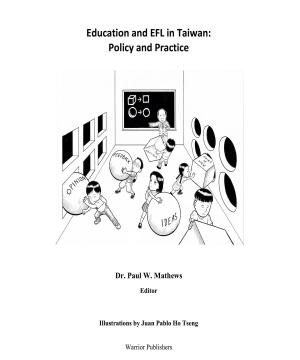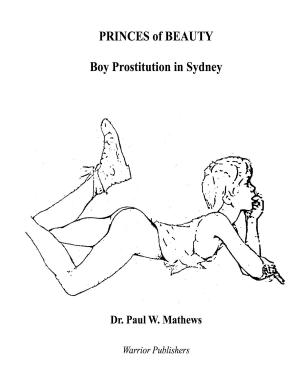Are They Serious? The Discourses of Family Planning, Bio-Citizenship and Nationalism in the Philippines
Nonfiction, Social & Cultural Studies, Social Science, Demography, Political Science, Government, Social Policy| Author: | Paul Mathews | ISBN: | 9781370152902 |
| Publisher: | Warrior Publishers | Publication: | November 12, 2016 |
| Imprint: | Smashwords Edition | Language: | English |
| Author: | Paul Mathews |
| ISBN: | 9781370152902 |
| Publisher: | Warrior Publishers |
| Publication: | November 12, 2016 |
| Imprint: | Smashwords Edition |
| Language: | English |
This book explores the discourses of bio-medicine (ie. Family Planning), nationalism and citizenship specifically in the Philippines. Little has been researched into how the biomedical discourse has helped constitute the nature of citizenship of the Filipino for the purpose of building a nation-State; that is, who is a “medically” proper and fit person to be a citizen of and to reproduce the nation-State. Prior analyses of FPPs have often focused on their failure in terms of either blind peasant resistance or, at best, fertility as culturally inspired and functional. Little attention has been given to basic antagonistic class relations at the national and transnational levels and how these may be linked with Family Planning (FP), bio-medicine generally, bio-citizenship and nationalism. I argue that the Philippines State attempts to intrude into the lives of Filipinos and construct them as national subjects at various levels of competence on the basis of their “medical” status. Their level of such competence reflects their relative willingness and ability to subscribe to a nationalist narrative, and leads to a denigration—in terms of (bio)citizenship status—of those who do not support this narrative.
This nationalist narrative is constructed in terms of neo-eugenics and neo-Malthusianism, with the objectives and consequences of maintaining a high level of population growth, and to do so in such a way as to appear benign in addressing “the population problem”. But the delivery of and access to FPPs, stratified as these processes are, contradict the intent to reach populations assumed to be most in need of FP, while in fact simultaneously reinforcing stigma against them. This public health effort gives rise to a new problematique and to a perceived, new “risky” population: unrepentant bodies.
Given this “risky” population, and the problematic nature of FPPs, the over-riding question of this paper is: why would the State implement a FPP for the lower classes when it was clearly thought by policy makers that the former were incapable if being uplifted?
This book explores the discourses of bio-medicine (ie. Family Planning), nationalism and citizenship specifically in the Philippines. Little has been researched into how the biomedical discourse has helped constitute the nature of citizenship of the Filipino for the purpose of building a nation-State; that is, who is a “medically” proper and fit person to be a citizen of and to reproduce the nation-State. Prior analyses of FPPs have often focused on their failure in terms of either blind peasant resistance or, at best, fertility as culturally inspired and functional. Little attention has been given to basic antagonistic class relations at the national and transnational levels and how these may be linked with Family Planning (FP), bio-medicine generally, bio-citizenship and nationalism. I argue that the Philippines State attempts to intrude into the lives of Filipinos and construct them as national subjects at various levels of competence on the basis of their “medical” status. Their level of such competence reflects their relative willingness and ability to subscribe to a nationalist narrative, and leads to a denigration—in terms of (bio)citizenship status—of those who do not support this narrative.
This nationalist narrative is constructed in terms of neo-eugenics and neo-Malthusianism, with the objectives and consequences of maintaining a high level of population growth, and to do so in such a way as to appear benign in addressing “the population problem”. But the delivery of and access to FPPs, stratified as these processes are, contradict the intent to reach populations assumed to be most in need of FP, while in fact simultaneously reinforcing stigma against them. This public health effort gives rise to a new problematique and to a perceived, new “risky” population: unrepentant bodies.
Given this “risky” population, and the problematic nature of FPPs, the over-riding question of this paper is: why would the State implement a FPP for the lower classes when it was clearly thought by policy makers that the former were incapable if being uplifted?















